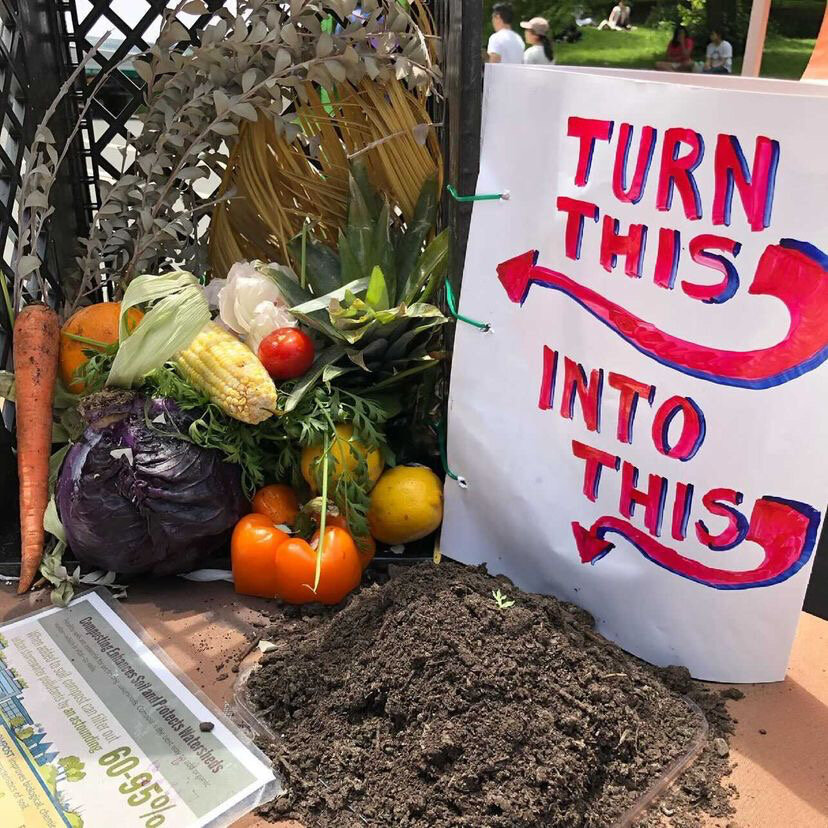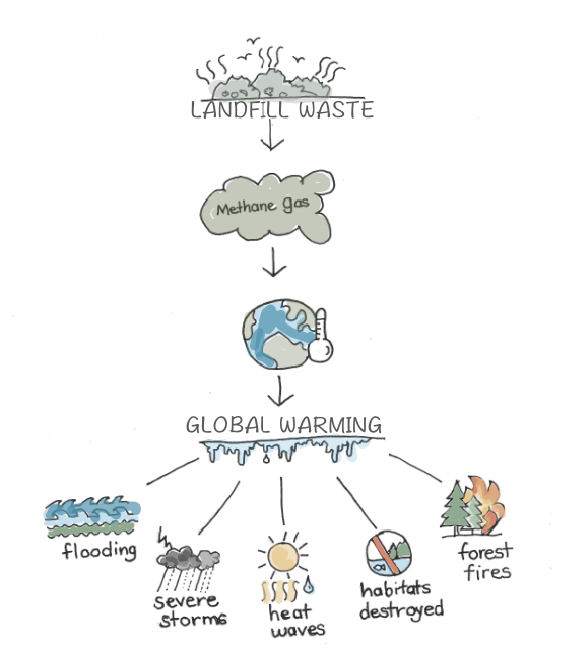What is Composting?
Image Credit: GrowNYC
Composting is the best way for us to manage food scraps and organic waste that can’t otherwise be repurposed, donated, or used as animal feed.
Know any other solution that addresses three of our biggest problems?
1) Food Waste
2) Climate Change & Emissions
3) Land Degradation & Desertification
Didn’t think so.
Read on to learn about the easiest way ANYONE can have a HUGE & INCREDIBLE impact on our planet <3
What is the process of Composting?
Decomposition is nature’s way of recycling nutrients back into the earth
Composting optimizes and speeds up the natural decomposition process by providing the ideal conditions for organic material to break down — Think of it as controlled decomposition
The process transforms what was once something we considered “trash” into an incredibly valuable resource called compost
What is Compost?
Compost is dark, rich, earthy, and full of vital plant nutrients and teeming with beneficial organisms!
The application of compost dramatically improves the biological, chemical, and physical properties of soil!
The below video from Kiss the Ground does a fabulous job introducing the magical nature of compost and how it plays a huge part in saving our planet!
Benefits
For more deets on how creating composts supports the triple bottom line while saving our planet, check out this post!
Our “waste” is a resource!
Composting represents the greatest opportunity and the easiest way that every single one of us can do our part to reduce global warming… and our food scraps are the key ingredient!
All of this sounds great…
But how is our food and organic waste handled today?
Hint: Not the way it should be
Food is the single largest category of material in U.S. landfills
According to the EPA, in 2018 the United States sent 63 million tons — 139 billion pounds — of food was sent to landfills. Food and yard trimmings combined amounted to at least 31.4% of our waste stream. If this material had been composted instead, more than 70 billion tons of greenhouse gases could have been prevented from releasing into our atmosphere. According to a 2019 report from U.S. PIRG, composting all of our organic materials would get us nearly one-third of the way towards zero waste!
Speaking of greenhouses gases… let’s talk about methane.
Credit: New Green Routine
Food in landfills = methane emissions = global warming
In order for organic material to decompose, it requires oxygen. Unfortunately, landfills lack oxygen. When organic material lacks the oxygen it needs to decompose it releases methane instead and takes much longer to decompose. A single head of lettuce takes 25 years to fully decompose in a landfill!
Methane, like carbon, is a greenhouse gas (GHG). Also like carbon, there is way too much of it in our atmosphere.
Landfills are the third largest source of methane emissions
Methane is 84x more effective at trapping heat in our atmosphere than CO2 over a 20 year period
Even though CO2 stays in the atmosphere longer, methane drives climate change in the short-term
Atmospheric levels are higher today than they have ever been before
As bad as methane is, it only stays in our atmosphere for 10 years. Which is REALLY good news! Because we have the technology & knowledge to make a rapid, full-scale transition to dramatically reduce our methane emissions, which will reduce the rate of global warming by up to 30%! That’s why I’m so psyched about composting! It can actually save our lives.






